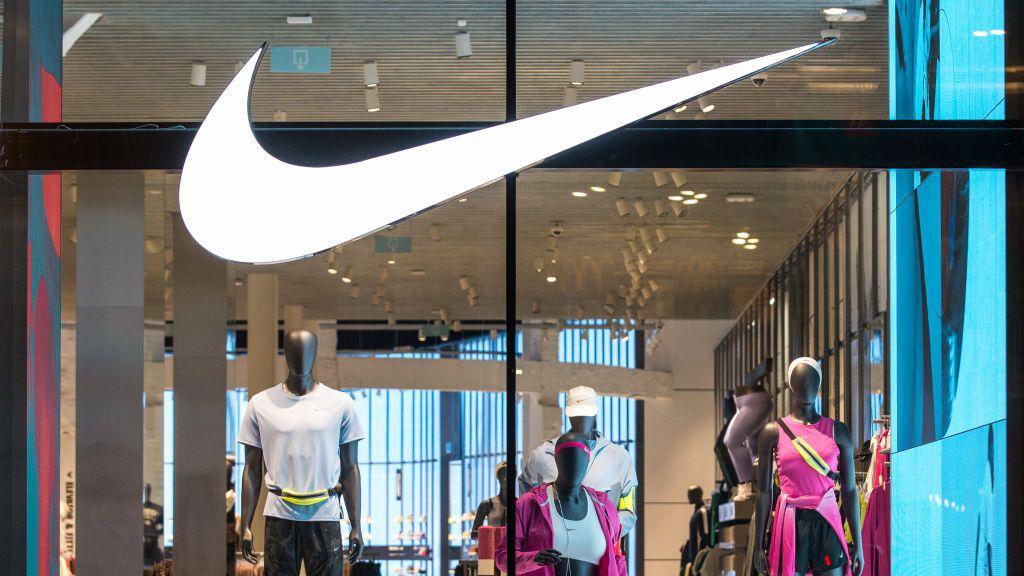Nike and Sky ads banned over online tactics

- Published
Adverts for sports giant Nike and broadcaster Sky have been banned for using tactics which could mislead customers into spending more than intended.
Nike ran an advert on social media which showed the price of the trainers as ┬г26, only for customers to discover when they clicked that it was for a children's size.
Sky's advert did not make clear a free trial for Now TV would renew automatically with a fee unless it was cancelled.
The Advertising Standards Authority (ASA) is cracking down on online ads like these, saying their structure misleads customers. Both companies defend the adverts.
Nike's ad featured an exploding head emoji and a black heart emoji, to emphasise what a great deal was on offer.
The ASA said this would lead browsers to expect a significant discount and assume the shoes must be available in a range of sizes.
In fact, the trainers were only available in sizes UK3 to UK6. And, because children's shoes attract no VAT, the discounted price is less of a bargain.
The ASA said it was investigating the way firms used this kind of "online choice architecture" after receiving complaints.
Brands often use strategies that prompt people to click on an ad, but hide or delay key information until later in the process, a set of tools dubbed "dark pattern" tactics.
These can include the charging of small fees added along the purchasing process known as "drip pricing" and other ways that reduce price transparency for customers.
Sometimes ads refer to limited supply or limited time on a deal, to increase the pressure to buy.
Consumer group Which? said last year that "dark patterns can leave consumers feeling manipulated or annoyed and in some cases may cause financial harm".
- Published25 September
- Published7 August
- Published20 May
In the case of Sky, the ASA criticised the way subscription options were presented to customers signing up for streaming service Now TV, which belongs to Sky.
Customers who signed up found that free trials for its Cinema and Boost services were automatically added to their basket and would auto-renew for a fee unless cancelled at the end of the seven-day free trial period.
Although the conditions of the free trial were stated, the ASA said the information was in a smaller font and a less prominent colour.
The text was also underneath the button to proceed, making it likely that people would miss it, the ASA said.
Sky said it believed the presentation of the ad was clear, legible and immediately visible.
It added that the concept of a seven-day free trial was so widely understood that it was not misleading.
Nike said the ad for its shoes had been created and published by The Sole Supplier, an online footwear marketplace, without any input or oversight from the sportswear giant itself.
However, Nike argued a reasonable consumer would assume there would be a limit on availability in some way.
The ASA also banned an ad from the food replacement firm Huel, the third of their ads to be banned in the last two months.
The ASA said the health benefit and cost savings claims made in the ad could not be substantiated.